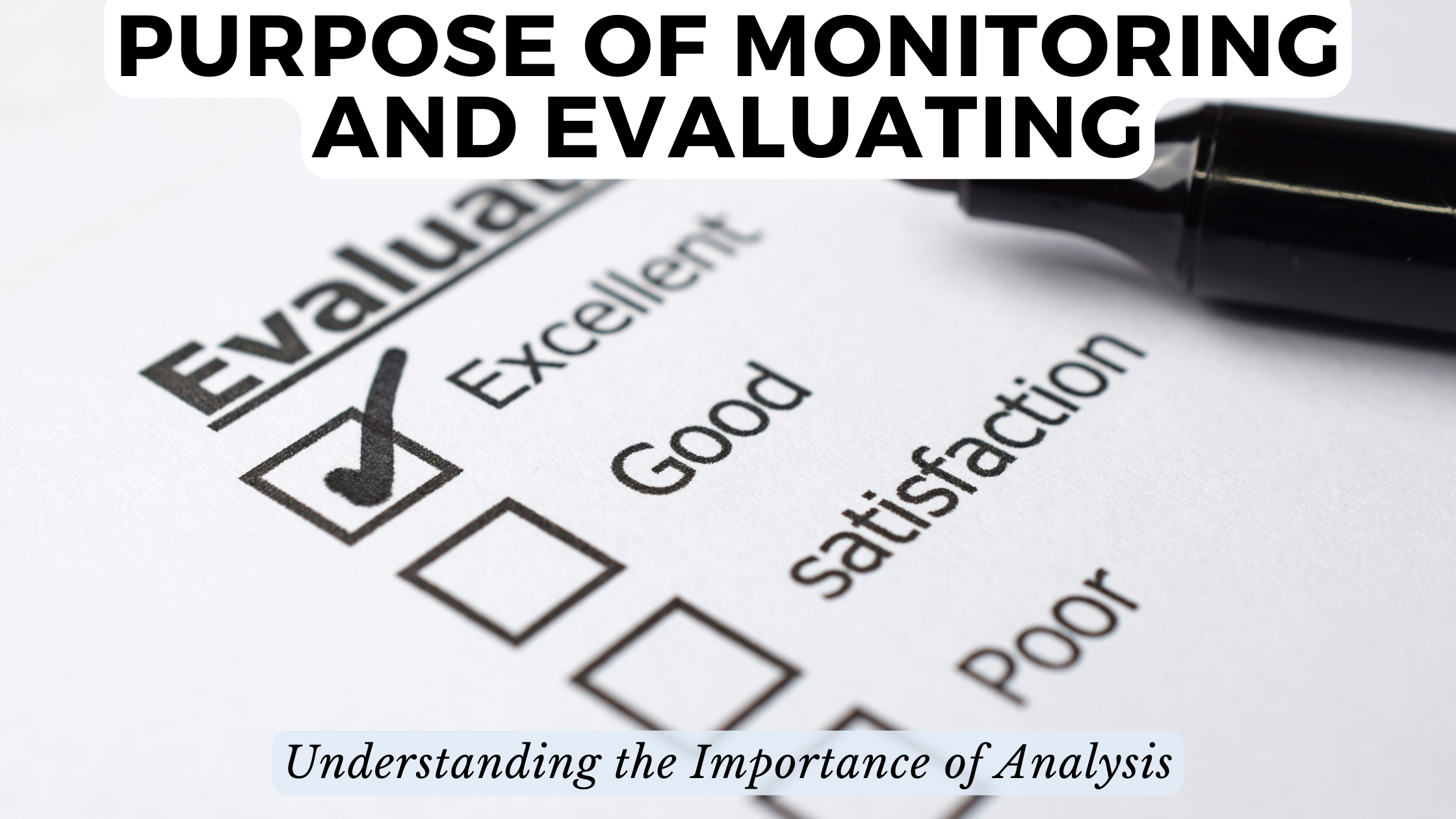Purpose of Monitoring and Evaluating: Understanding the Importance of Analysis
- Expense Management Software Credit Cards Investing Business Solutions


Purpose of Monitoring and Evaluating: Understanding the Importance of Analysis
In the dynamic landscape of business and technology, the purpose of monitoring and evaluating cannot be overstated. This article delves into the core significance of analysis, uncovering why businesses across industries emphasize continuous assessment and improvement strategies. From defining the purpose to outlining effective solutions, let’s explore how monitoring and evaluating contribute to organizational success.
The Essence of Monitoring and Evaluating
1. Strategic Decision-Making:
Monitoring and evaluating processes provide critical insights for strategic decision-making. Businesses utilize data-driven analysis to understand market trends, consumer behavior, and competitive landscapes, facilitating informed decision-making.
2. Performance Optimization:
Regular evaluation allows businesses to identify areas of improvement within their operations. Whether it’s streamlining processes, enhancing product quality, or refining customer service, monitoring is the compass for optimizing overall performance.
3. Adaptability to Change:
In a rapidly evolving business environment, adaptability is key. Monitoring equips organizations to stay agile by recognizing shifts in consumer preferences, technological advancements, and industry trends, enabling timely adjustments.
4. Risk Mitigation:
Understanding potential risks is integral to mitigating them effectively. Through continuous monitoring, businesses can identify risks early on, allowing proactive measures to be implemented and reducing the impact on operations.
5. Performance Accountability:
Monitoring and evaluating create a culture of accountability within an organization. Team members are aware that their contributions are being assessed, fostering a sense of responsibility and encouraging continuous improvement.
Relevant SaaS Products for Monitoring and Evaluating
Explore these SaaS tools to enhance your monitoring and evaluating capabilities:
- Google Analytics: For Website Analytics Gain comprehensive insights into your website’s performance, user behavior, and traffic sources with Google Analytics. Track key metrics to inform your digital strategy.
- Tableau: For Data Visualization Tableau transforms raw data into visually appealing and interactive dashboards. Enhance your analysis capabilities by presenting complex data in a more digestible format.
- Trello: For Project Management Trello facilitates project monitoring and collaboration. Track project progress, assign tasks, and enhance team coordination for improved overall performance.
- SurveyMonkey: For Customer Feedback Gather valuable customer insights through surveys with SurveyMonkey. Use customer feedback to evaluate satisfaction levels and identify areas for improvement.
- Salesforce: For CRM and Sales Monitoring Salesforce offers a comprehensive CRM solution, enabling businesses to monitor and evaluate sales processes, customer interactions, and overall revenue performance.
Conclusion: Navigating Success Through Analysis
In conclusion, the purpose of monitoring and evaluating is to navigate the complexities of the business landscape successfully. By embracing analysis as a cornerstone of operations, organizations can adapt, grow, and thrive in an ever-changing environment.
Unlock the potential of your SaaS stack with Subscribed.FYI. Seamlessly manage your subscriptions, compare tools, and access exclusive deals to optimize your business processes.
Relevant Links:








